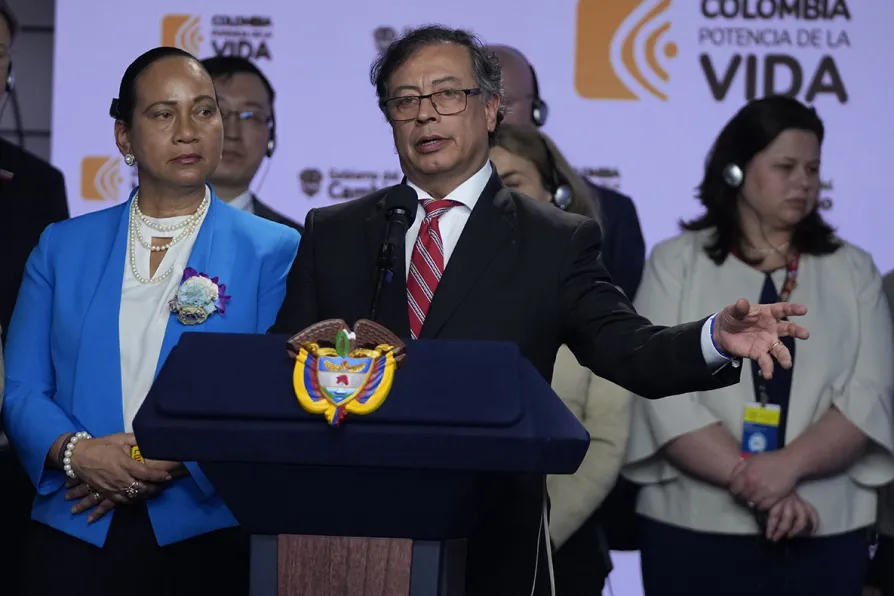Colombia suspends ceasefire deal with a rebel group

 Colombia's President Gustavo Petro attends a press conference with members of UN Security Council after a meeting at the Presidential Palace in Bogota, Colombia, February 8, 2024
Colombia's President Gustavo Petro attends a press conference with members of UN Security Council after a meeting at the Presidential Palace in Bogota, Colombia, February 8, 2024
COLOMBIAN President Gustavo Petro suspended a ceasefire with one of a handful of armed groups on Sunday, accusing its fighters of breaking the truce by attacking an indigenous community.
The government said that starting tomorrow it would resume military operations against Estado Mayor Central, a group of fighters who broke away from the Revolutionary Armed Forces of Colombia when it signed a peace pact in 2016.
Indigenous leaders in the war-torn western region of Cauca said an attack by the dissident group Saturday wounded at least three people and a young student was taken away by force.
Similar stories

Colombia’s success in controlling the drug trade should be recognised and its sovereignty respected, argues Dr GLORY SAAVEDRA












